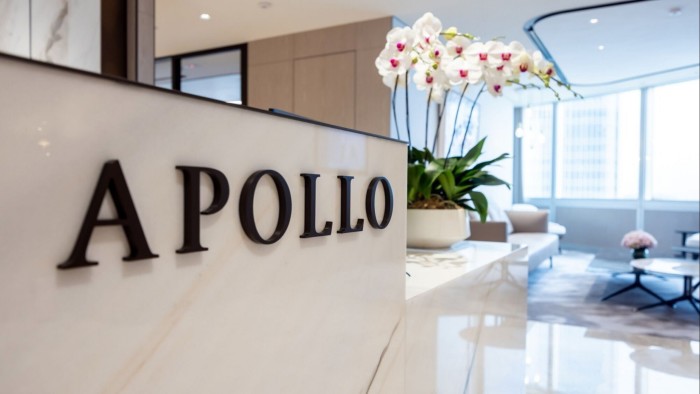Unlock the Editor’s Digest for free
Roula Khalaf, Editor of the FT, selects her favourite stories in this weekly newsletter.
Apollo Global Management has told graduates that it will delay recruiting for junior associates until next year, after a stand-off between Wall Street banks and private equity firms over how they secure young talent.
Private equity groups had increasingly been hiring recent graduates with start dates two years later, allowing them to first complete a training programme at an investment bank.
But the practice had become a source of friction with Wall Street’s top banks, with JPMorgan Chase telling its incoming investment bank analysts last week that it would fire them if they accepted future-dated roles elsewhere within 18 months of starting at the bank.
“Hiring decisions at Apollo are among the most significant to our business. With that in mind, we will not formally interview and extend offers this year for the Class of 2027,” Apollo wrote to students that it had been targeting to start in two years, in a letter seen by the Financial Times.
Apollo, like KKR and TPG, had been among the handful of top-tier investment firms that had edged the associate recruiting process forward from the autumn to summer and then to the spring window between college graduation and the start of investment bank training sessions in July.
The large firms insist they were not first-movers in the recruitment timetable creep but rather responded to others jumping in before them.
The FT previously reported that private equity firms, headhunters and students had reached breaking point with the truncated schedule.
Jamie Dimon, JPMorgan’s chief executive, has been outspoken about his views on the private equity recruitment process, where firms offer graduates jobs before they have started their investment banking analyst programme.
He has called the process “unethical” and argued that it created conflicts of interest for graduates who could find themselves working on deals that involve their future employer.
Senior executives at Wall Streets banks have also privately expressed frustration with the frenzied recruitment cycle, where they are essentially training up analysts and losing their best talent to buyout groups.
But most have stopped short of threatening analysts with termination or speaking out against it, largely because these firms are important clients.
Marc Rowan, chief executive of Apollo, said on Wednesday: “When someone says something that is just plainly true, I feel compelled to agree with it.
“Bank CEOs, along with others, have said what many of us have been thinking: recruiting has crept earlier and earlier every year and asking students to make career decisions before they truly understand their options doesn’t serve them or our industry.
“We are in a fortunate position where we see an abundance of talent. But when great candidates make rushed decisions it creates avoidable turnover — and that serves no one.”
Apollo said in its letter that it expected to remain in touch with prospective candidates and continued to be “deeply interested in getting to know talented individuals like yourself” and looked forward “to reconnecting down the road to explore Associate opportunities together”.


